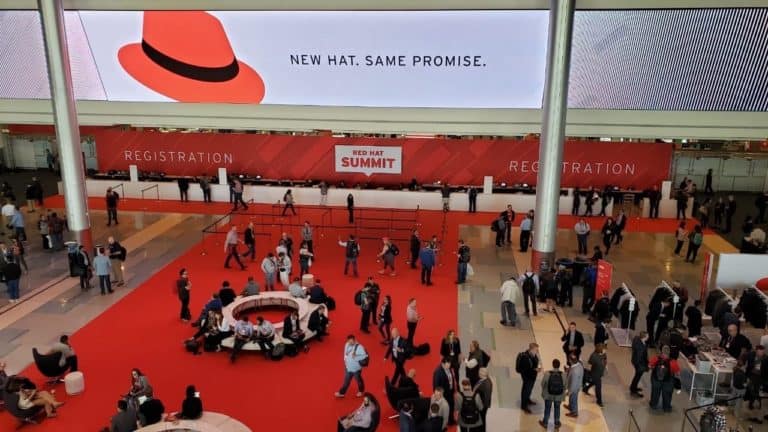Red Hat Ansible joins the Azure Marketplace. Thereby, the automation platform becomes available through an Azure license. In addition, the deployment and configuration of Ansible in Azure is faster and easier than made possible by previous integrations.
Red Hat Ansible entails an automation platform. Its applications are broad. Automating infrastructure provisioning is an example. The latter process traditionally involves complex code. Ansible replaces such code with ‘Playbooks’ — brief lines in English, which users write to employ Ansible for a goal of choosing. The platform lends itself to the automation of the aforementioned application deployment, applying security measures and configuring networks.
Red Hat Ansible’s availability has been excellent since its launch in 2019. The service is supported by the technologies of most major IT players. Integrations with Google Cloud, Azure and AWS facilitate a rollout in the public cloud. Integrations with VMware, Xenserver, NetApp, Dell EMC and IBM support on-premises.
In this light, the new adoption of Red Hat Ansible in the Azure Marketplace is not groundbreaking. The integration of Red Hat Ansible and environments into Azure has been supported for years. Changes resulting from the event are limited to the commercial model and ease of use of Red Hat Ansible in Azure. While the specifics on licensing have not yet been shared, the Azure variant promises a cost-effective option for companies deploying Ansible to manage workloads in hybrid cloud environments. In addition, the release promises faster, easier communication between Azure and Ansible than was possible with earlier integrations.
Preview
Red Hat Ansible in Azure is currently in a preview phase. The service is exclusively available on-demand. The moment at which a full release follows is not known at this time.
